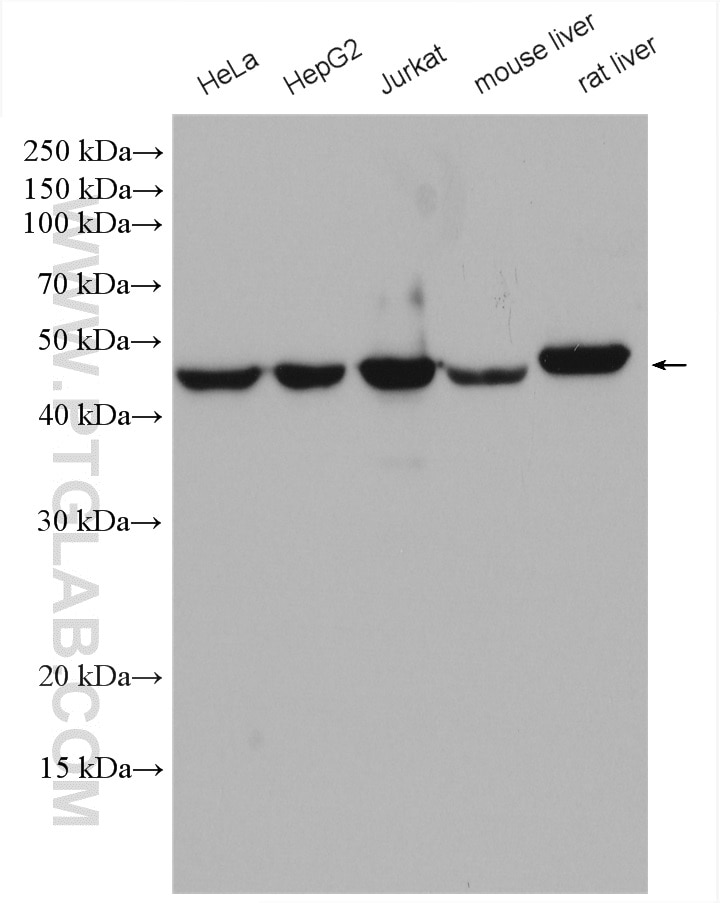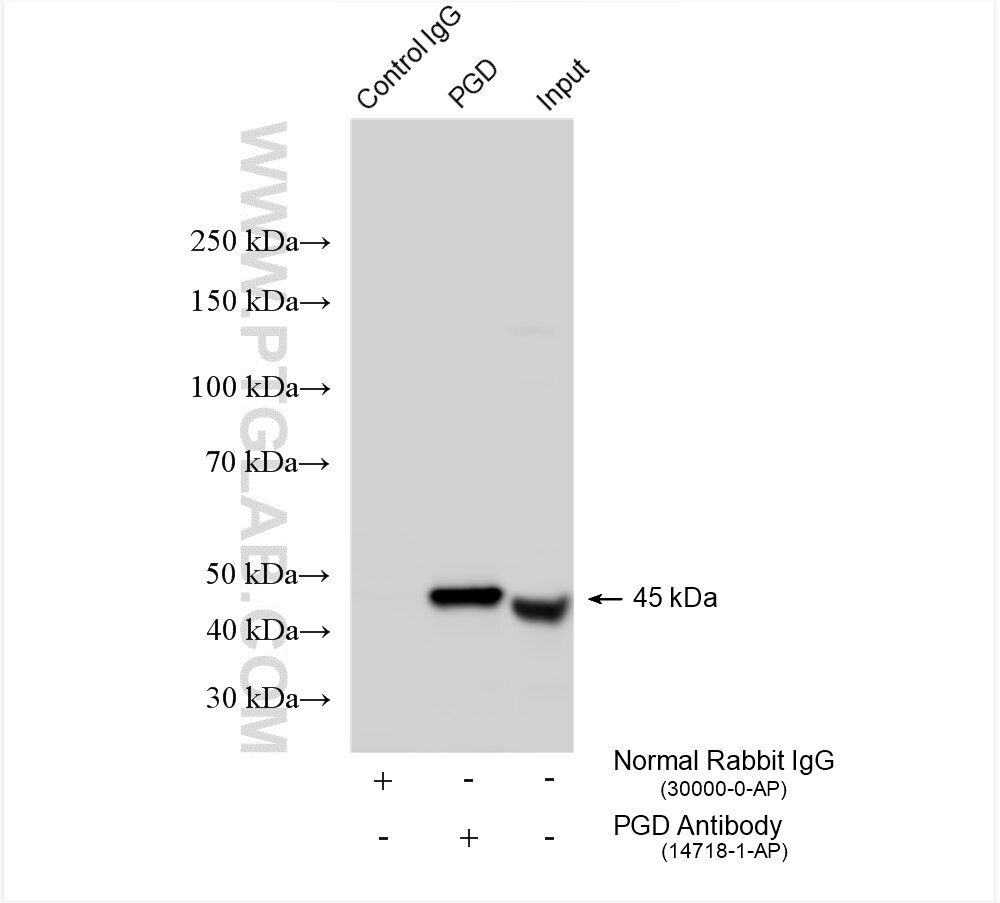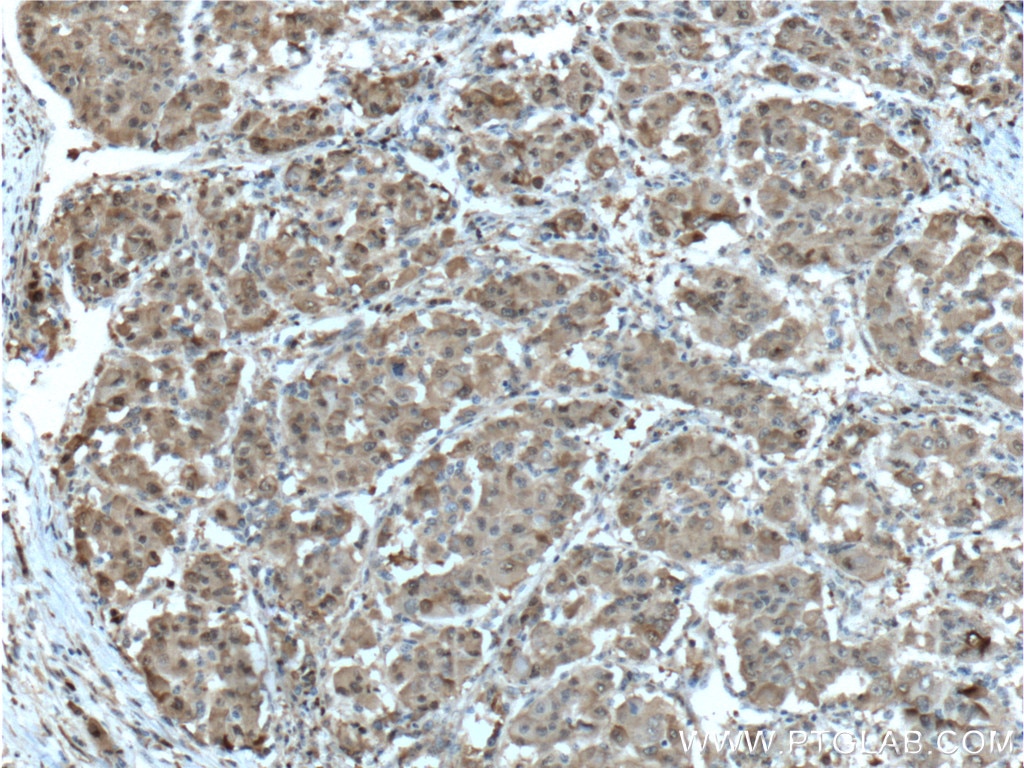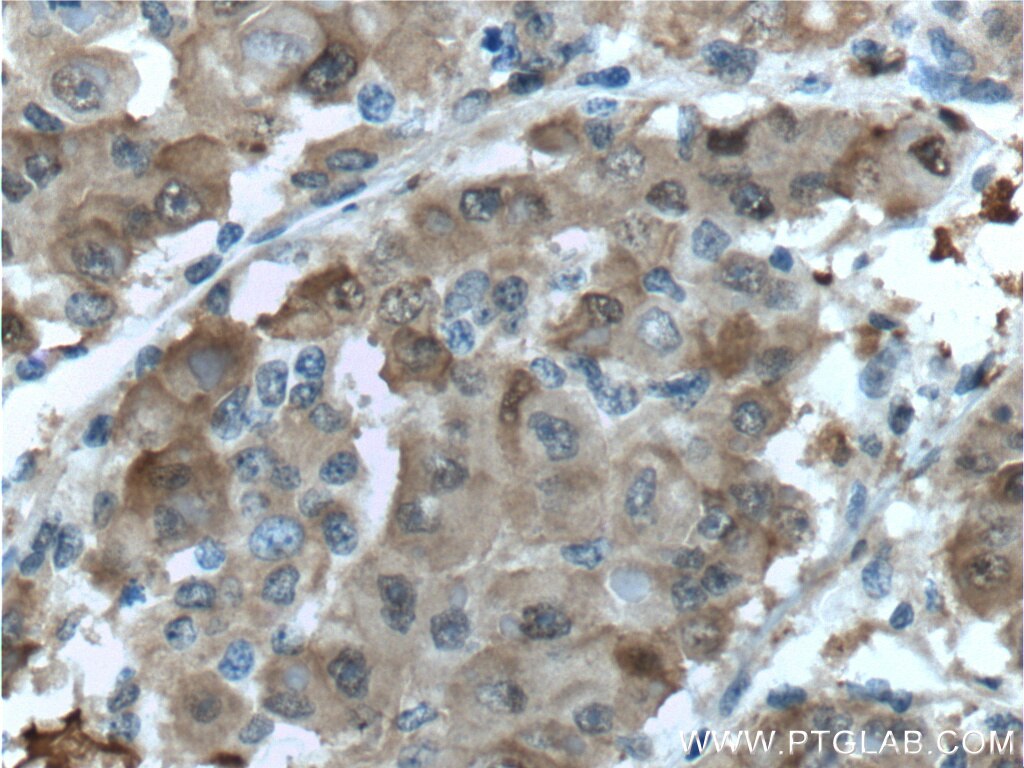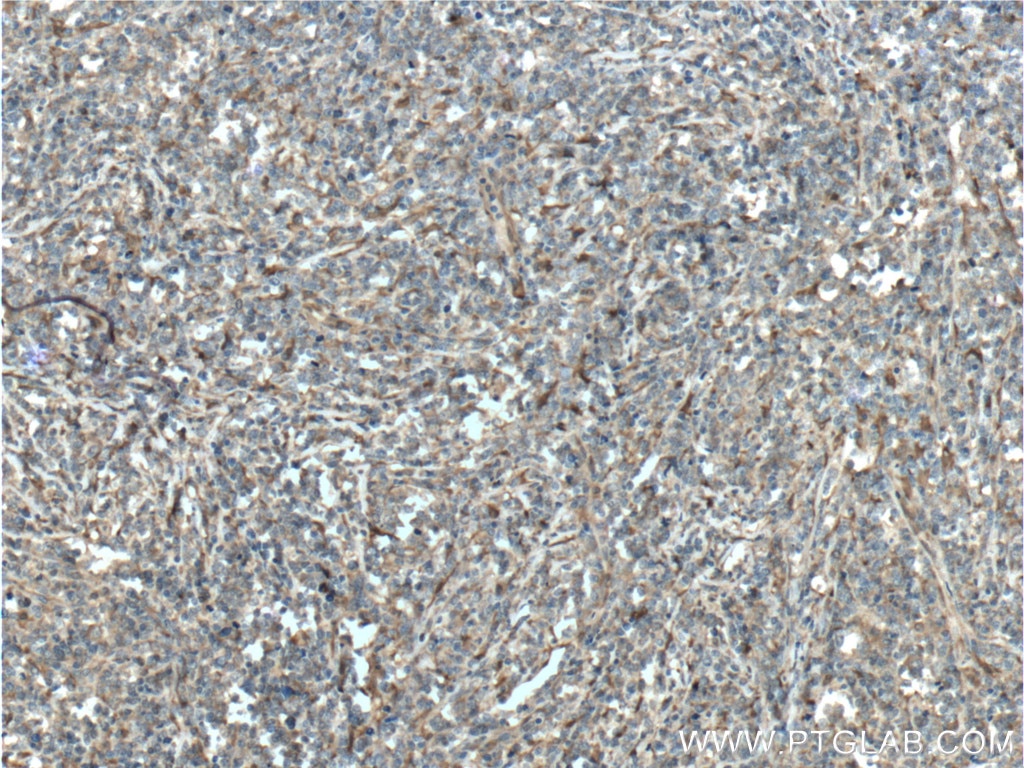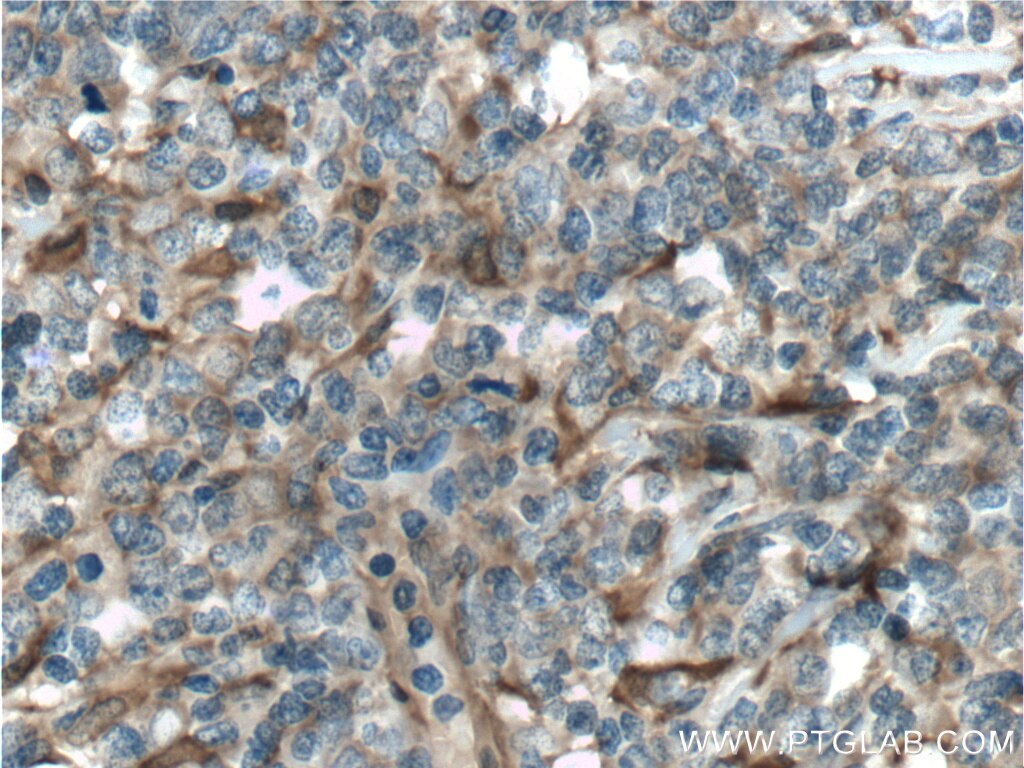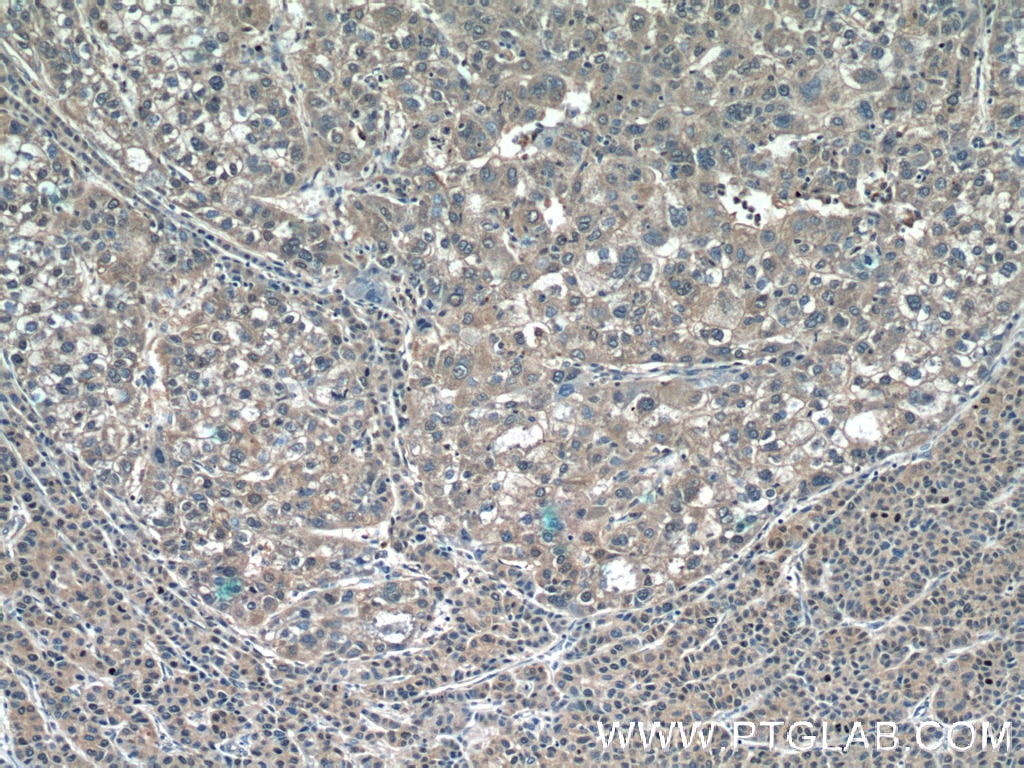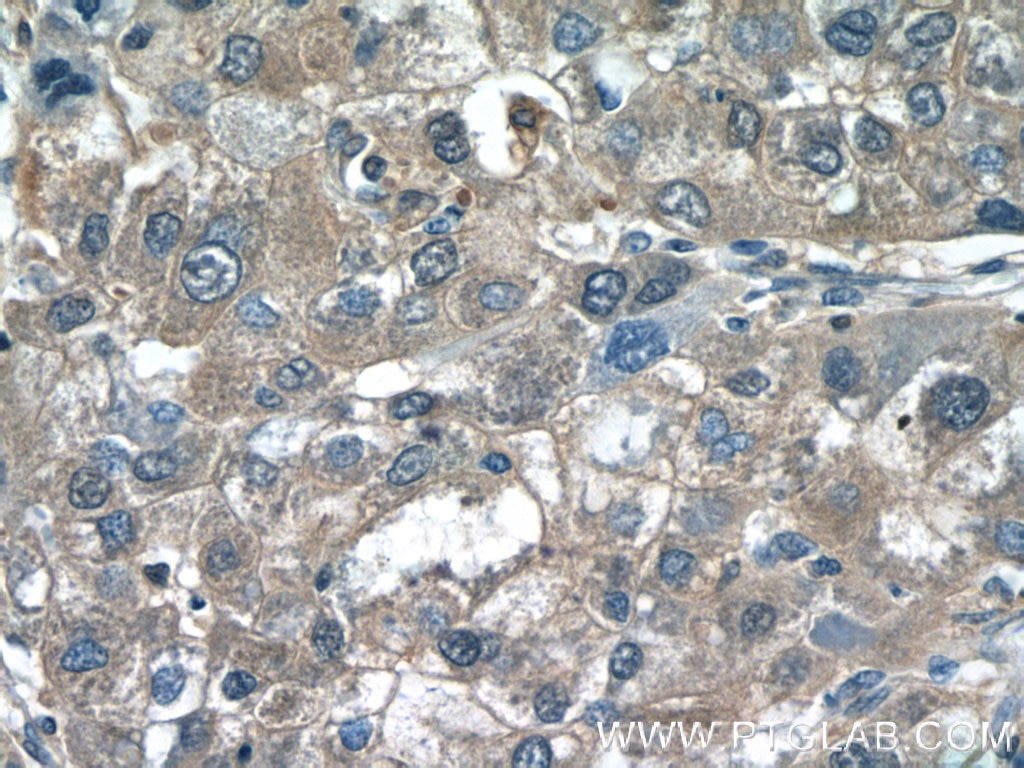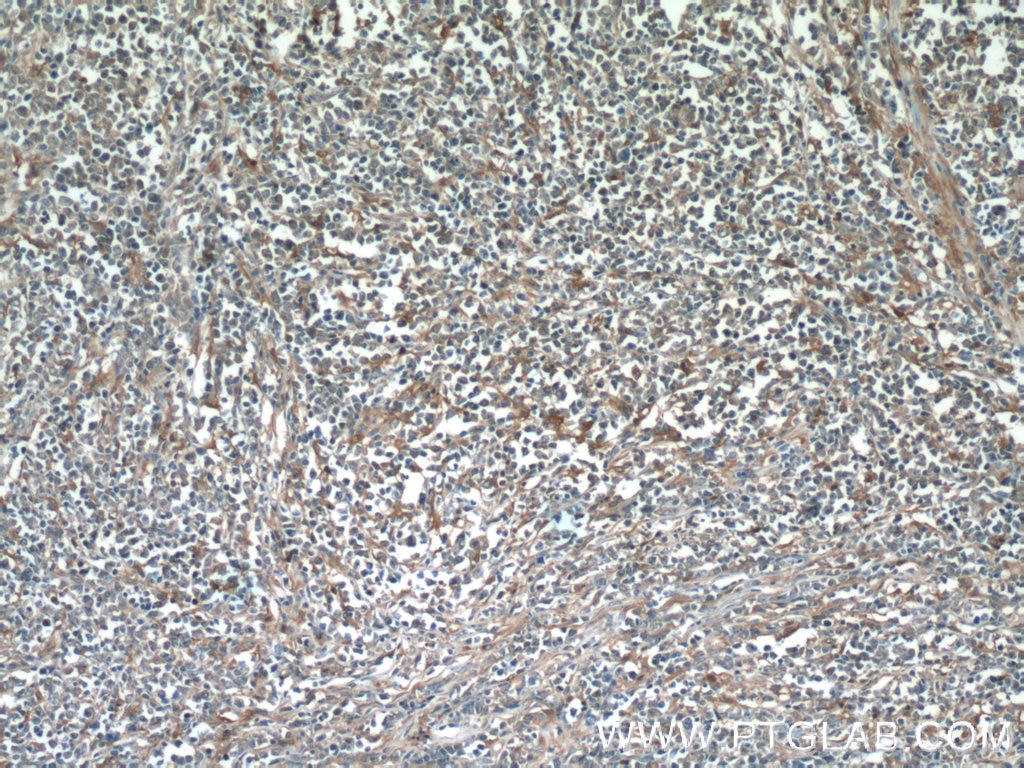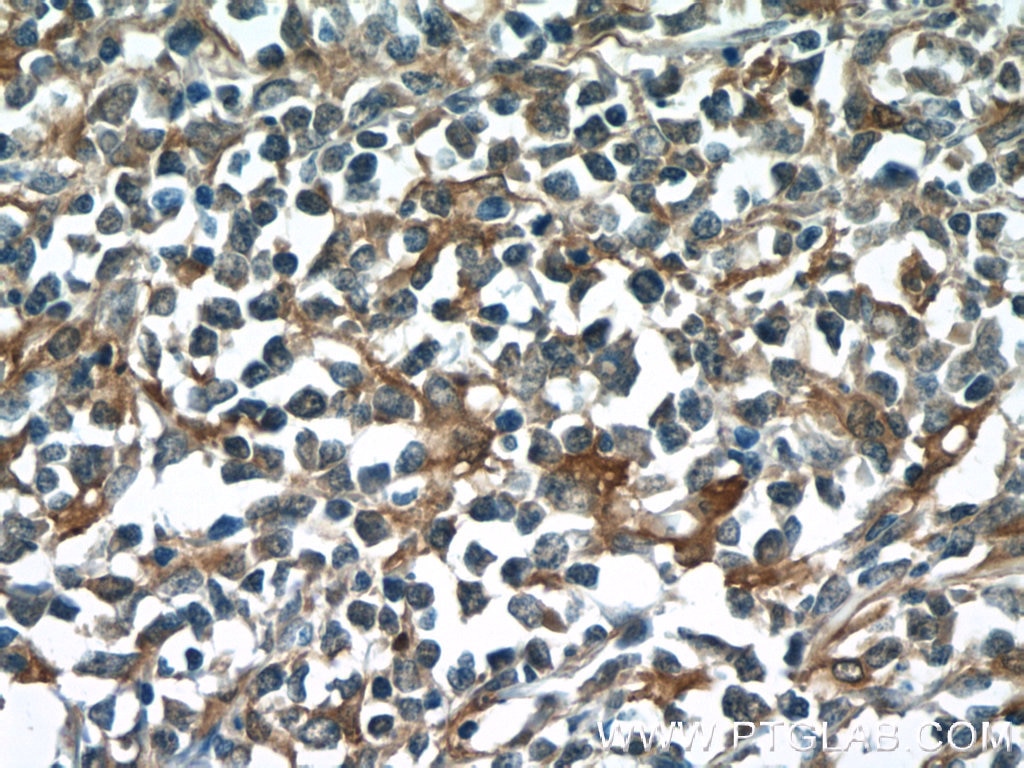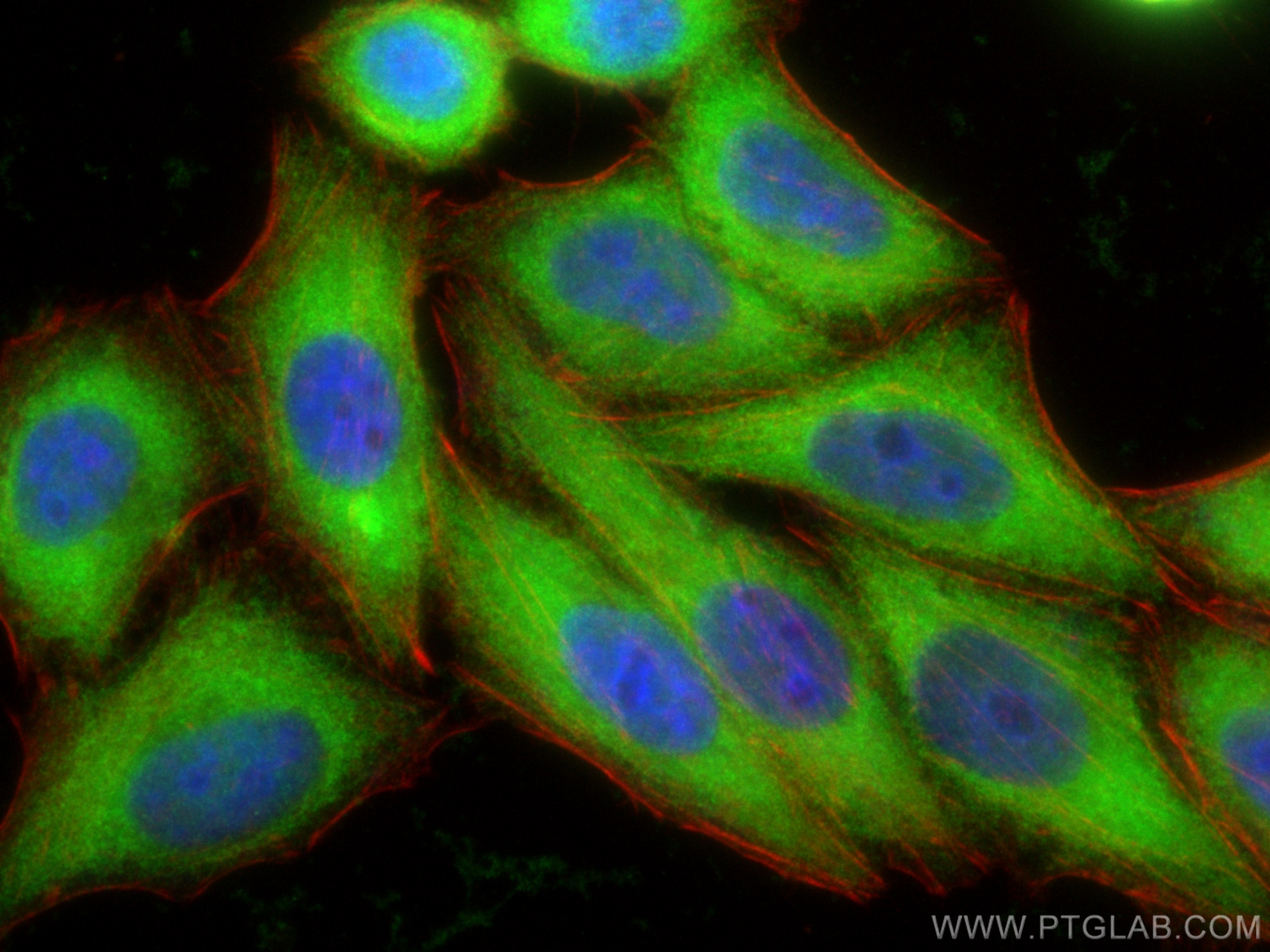Tested Applications
| Positive WB detected in | HeLa cells, HepG2 cells, Jurkat cells, mouse liver tissue, rat liver tissue |
| Positive IP detected in | HepG2 cells |
| Positive IHC detected in | human liver cancer tissue, human lymphoma tissue Note: suggested antigen retrieval with TE buffer pH 9.0; (*) Alternatively, antigen retrieval may be performed with citrate buffer pH 6.0 |
| Positive IF/ICC detected in | HepG2 cells |
Recommended dilution
| Application | Dilution |
|---|---|
| Western Blot (WB) | WB : 1:1000-1:4000 |
| Immunoprecipitation (IP) | IP : 0.5-4.0 ug for 1.0-3.0 mg of total protein lysate |
| Immunohistochemistry (IHC) | IHC : 1:300-1:1200 |
| Immunofluorescence (IF)/ICC | IF/ICC : 1:200-1:800 |
| It is recommended that this reagent should be titrated in each testing system to obtain optimal results. | |
| Sample-dependent, Check data in validation data gallery. | |
Published Applications
| KD/KO | See 4 publications below |
| WB | See 23 publications below |
| IHC | See 6 publications below |
Product Information
14718-1-AP targets PGD in WB, IHC, IF/ICC, IP, ELISA applications and shows reactivity with human, mouse, rat samples.
| Tested Reactivity | human, mouse, rat |
| Cited Reactivity | human, mouse, rat |
| Host / Isotype | Rabbit / IgG |
| Class | Polyclonal |
| Type | Antibody |
| Immunogen |
CatNo: Ag6444 Product name: Recombinant human PGD protein Source: e coli.-derived, PGEX-4T Tag: GST Domain: 137-483 aa of BC000368 Sequence: YGPSLMPGGNKEAWPHIKTIFQGIAAKVGTGEPCCDWVGDEGAGHFVKMVHNGIEYGDMQLICEAYHLMKDVLGMAQDEMAQAFEDWNKTELDSFLIEITANILKFQDTDGKHLLPKIRDSAGQKGTGKWTAISALEYGVPVTLIGEAVFARCLSSLKDERIQASKKLKGPQKFQFDGDKKSFLEDIRKALYASKIISYAQGFMLLRQAATEFGWTLNYGGIALMWRGGCIIRSVFLGKIKDAFDRNPELQNLLLDDFFKSAVENCQDSWRRAVSTGVQAGIPMPCFTTALSFYDGYRHEMLPASLIQAQRDYFGAHTYELLAKPGQFIHTNWTGHGGTVSSSSYNA Predict reactive species |
| Full Name | phosphogluconate dehydrogenase |
| Calculated Molecular Weight | 53 kDa |
| Observed Molecular Weight | 53 kDa, 45 kDa |
| GenBank Accession Number | BC000368 |
| Gene Symbol | PGD |
| Gene ID (NCBI) | 5226 |
| RRID | AB_2236801 |
| Conjugate | Unconjugated |
| Form | Liquid |
| Purification Method | Antigen affinity purification |
| UNIPROT ID | P52209 |
| Storage Buffer | PBS with 0.02% sodium azide and 50% glycerol, pH 7.3. |
| Storage Conditions | Store at -20°C. Stable for one year after shipment. Aliquoting is unnecessary for -20oC storage. 20ul sizes contain 0.1% BSA. |
Background Information
PGD, also named as PGDH, belongs to the 6-phosphogluconate dehydrogenase family. PGD catalyses the oxidative decarboxylation of 6-phosphogluconate to ribulose 5-phosphate in the context of the oxidative part of the pentose phosphate pathway. PGD is important for the production of NADPH, which is necessary for reductive biosynthesis, such as the formation of lipids and nucleotides, and the activity of enzymes involved in maintaining cell integrity, in combatting oxidative stress and in the first line of immunological defence. (PMID: 35234135)
Protocols
| Product Specific Protocols | |
|---|---|
| IF protocol for PGD antibody 14718-1-AP | Download protocol |
| IHC protocol for PGD antibody 14718-1-AP | Download protocol |
| IP protocol for PGD antibody 14718-1-AP | Download protocol |
| WB protocol for PGD antibody 14718-1-AP | Download protocol |
| Standard Protocols | |
|---|---|
| Click here to view our Standard Protocols |
Publications
| Species | Application | Title |
|---|---|---|
Nat Commun Polo-like kinase 1 coordinates biosynthesis during cell cycle progression by directly activating pentose phosphate pathway. | ||
Clin Transl Med SIRT5 deficiency enhances the proliferative and therapeutic capacities of adipose-derived mesenchymal stem cells via metabolic switching. | ||
J Invest Dermatol Enhanced Glycogen Metabolism Supports the Survival and Proliferation of HPV-Infected Keratinocytes in Condylomata Acuminata. | ||
J Biol Chem Patient-derived organotypic tissue cultures as a platform to evaluate metabolic reprogramming in breast cancer patients | ||
iScience The Symbiotic Relationship between the Neural Retina and Retinal Pigment Epithelium Is Supported by Utilizing Differential Metabolic Pathways. |

